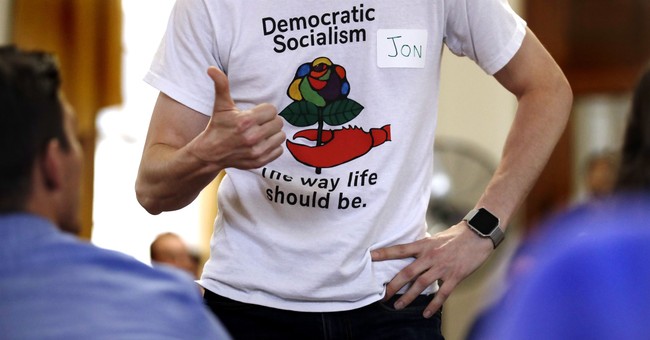
Source: AP Photo/Charles Krupa
Before the collapse of the USSR, Russian workers would say, “We pretend to work and the government pretends to pay us.” Today, people who favor free markets often say that socialism would work if humans were angels, pointing to the incentive problem.
Hayek argued that socialism is necessary for small groups, such as families. In fact, applying capitalist principles to families would destroy them. Hayek believed socialism could work in small groups, like communes and churches, where everyone knows everyone else. Many theologians think the early church in Jerusalem practiced communism, although the context and Greek indicate they didn’t.
However, all communes from the Pilgrims to the kibbutzim have failed because of the incentive problem. Kibbutzim have continued to exist in Israel but have changed radically from the original design. It’s human nature to quit working when the diligent see the lazy getting the same rewards.
All socialist intellectuals understood the incentive problem but insisted that the widespread adoption of socialist principles would transform human nature, returning it to a state of innocence and eliminating the incentive problem. When that didn’t happen in the U.S.S.R. and China under Mao, socialist leaders turned to punishment, then execution for those who refused to emerge from their capitalist cocoons as redeemed socialist butterflies. North Korea, Cuba, and Venezuela carry on that venerable tradition.
Continue reading at Townhall Finance.
